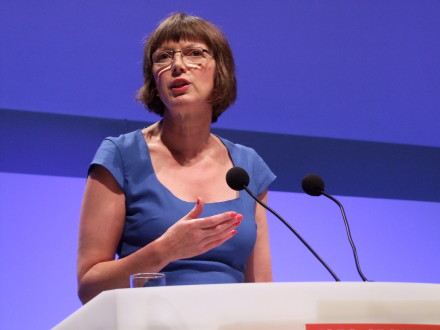
Labour risks looking like it cannot provide an effective Opposition, the head of the Trades Union Congress warned today.
Frances O’Grady said the party must focus on more than its members and MPs because Britain need an alternative to the Tories which is “united and focused on the concerns of working people”.
O’Grady, general secretary of the TUC, also warned that workers must not pay the price for Brexit with a reduction in their rights on the shop floor.
She was speaking in the run-up to annual congress, which begins in Brighton on Sunday.
“It is important that Labour does not just focus on members and MPs but actually unites and gets on with being an effective opposition and map out a route to victory.
“When there is a leadership contest on, people are inward-looking. But my strong advice would be that many working people are looking to Labour to become an effective opposition which is united and focused on the concerns of working people. Labour needs to be in a position to win these people’s votes,” she said.
O’Grady, whose organisation represents more than 5.8 million workers in 51 unions, warned against the impact of a split in the Labour Party.
When asked if she feared a rupture, she told The Guardian: “Divisions leave you weaker, not stronger”.
O’Grady, who has met David Davis, the Secretary of State for Brexit, and Greg Clark, the Business Secretary, also laid out the challenges for trade unions in the aftermath of the vote to leave the EU.
“It’s our first Congress post the Brexit vote so we want people focused on jobs, workers’ rights and investment, because we are very clear that workers mustn’t pay the price,” she told the BBC.
Many people in traditional Labour communities supported Brexit because “they felt shafted, it was one hell of a protest vote”, she added.




More from LabourList
Letters to the Editor – week ending 15th February 2026
‘Labour council candidates – it’s tough, but all is not lost’
‘Labour won’t stop the far right by changing leaders — only by proving what the left can deliver’